- Home
- Helen Forrester
The Lemon Tree Page 7
The Lemon Tree Read online
Page 7
Her voice rose and fell, as, in broken English, she refused to reduce the price that she wanted. The jeweller had assayed the gold and knew that the price she asked was not unreasonable, but he was in no hurry, so he let her rattle on.
While Tom loitered behind her, Leila whined and begged and pointed out the flawless workmanship of the Beirut goldsmith, until the jeweller became fed up with her; if he turned her away today, she would probably return tomorrow willing to accept his offer.
Tom shifted his feet uneasily, as he looked idly over a case of brooches. At the slight noise, the lady turned her head to look at him. She wore a plain white summer dress she had made herself and her face was framed by a cheap straw hat. Tom found himself looking into a pair of enormous, sad brown eyes – like a little spaniel’s, he thought. A cupid’s bow of a mouth trembled, as if tears were near. Under the white dress, a generous bosom heaved slightly.
The whole stringy six feet of Tom Harding shook with desire. What was a woman like that doing on her own? Was she a whore?
As he stared into the eyes of the pretty Lebanese, the argument with the jeweller appeared to have reached an impasse. The jeweller huffily banged the drawers of his counter shut and locked them. Tears glistened on the long black lashes of the lady. The necklace, a handsomely worked heavy chain with several red stones pendant from it, lay on the counter.
The jeweller moved slightly towards Tom. ‘Can I help you, Sir?’ he inquired politely.
Uncomfortably aware that he was roughly dressed in riding boots, a plaid shirt and a big felt hat, in a city which was quite full of prosperous people more formally attired, Tom looked down at Leila and replied soberly, ‘I got plenty of time. Finish with the lady.’
Still looking up at him, Leila scooped up the necklace and put it back into her reticule. ‘It finish,’ she told him tragically, the words coming out in softly accented English. She bowed her head and began to move slowly and despondently towards the door, her white skirt swaying gently round her.
Tom jerked to attention. Once she was outside that door, he would probably never see her again.
He took off his big felt hat and bowed to her. ‘Excuse me, Ma’am.’
She looked doubtfully up at him with a slight frown.
He swallowed. ‘I’m in the market for a necklace, Ma’am. Would that necklace be for sale privately?’ He paused, waiting for some response, but she had not fully understood what he said and was mentally translating his remarks. He hastened to add, ‘It’s a mighty smart chain – I believe my mother would like it – if you’ll forgive me for being so forward, Ma’am.’
The jeweller threw up his hands and went to tidy a cabinet. He knew when a man was hooked. Nevertheless, a woman should not show a stranger a necklace which was worth twice what he had offered for it; she could be robbed. Then he shrugged. If she were that foolish, it wasn’t his business. He took up a feather duster and began to dust the clocks in the cabinet.
At the mention of his mother, Tom was treated to a smile so delicious that he never quite recovered from it. He handed Leila out of the door and down the steps as if she were made of glass and then into a coffee shop two doors down the street.
Between coffee and pieces of pie and regrets that the necklace was too expensive for him to buy, he learned who she was and about her widowhood, her life in Beirut and in Chicago, and that she had a fourteen-year-old daughter. She told him frankly that she and her daughter both worked ten hours a day in a tailor’s garret; she had had to beg the afternoon off in order to see the jeweller.
In return, he told her that he had been a miner and had gone west from Chicago, to work in gold mines. Then he had heard a rumour of gold easily panned in the North Saskatchewan River, in Canada. Hoping to stake a claim, he had travelled north with four men also bent on instant wealth.
‘We knew that there was at least one Hudson’s Bay Fort on the North Saskatchewan, and we reckoned we could make that our jumping-off place. A few other Americans had travelled part of the route before us; they sold liquor to the Injuns for furs.
‘The trail wasn’t very clear, and it was rough going. We did O.K., though, and we were well north, when we had to make a detour round a huge slough. I was lagging behind because I had to – well, Ma’am, relieve myself.’
There was a hint of impishness in her understanding smile.
Encouraged, he continued, ‘And I’d got my eyes to the ground, watching where I trod between the bulrushes on one side and a lot of willows on the other – I guess they were willows. One minute I could hear the others shouting at me – and the next minute I couldn’t; and the next thing I know the darned horse got mired, and I called and called to ’em to come help me out. And no answer.
‘I couldn’t get the animal out – the more it struggled, the deeper it went. Finally, I had to watch it drown.’
‘Terrible, terrible,’ Leila sympathized.
‘I called and called to the other men. I was scared, I can tell you. Finally, I picked my way round the slough, but I’d no idea where I was. I couldn’t find a hint of the trail; and I’d nothing – gun, blanket, beans and tools, all went down with the horse. When I couldn’t even find the track of the others’ horses, I must’ve gone stark mad. When the Blackfoot found me, I was clean out of my mind.’
‘Blackfoot?’ queried Leila, wide-eyed, her mouth open.
‘Yeah. Injuns. A hunting party. They fed me and put me on a horse. I don’t remember much about it – I was too far gone, I guess. Next thing I know truly is I’m in bed in Fort Edmonton, with a Cree woman nursing me better. She told me the Blackfoot simply dumped me at the gate of the Fort and rode away. She was a medicine woman sent for by the Cree wife of one of the Hudson’s Bay clerks. I tell you, that old woman had me on my feet and sane very quick. I owe a lot to the Injuns up there – and I never forget it.’
‘What happened to your friends?’
‘Dunno. When I inquired around the Fort, they’d never arrived. Never heard of one of them from that day to this. Maybe they struck another Fort – or joined up with a group of whisky-runners. Or maybe they got lost, as well – and died.’
Leila nodded her head from side to side in wonderment. ‘Terrible,’ she repeated, it being the one word she knew in English to describe his experiences.
‘We were plumb crazy to go north without a guide. We were miners, not explorers or even trappers.’
‘What happen next?’
‘Well, to be honest, I was afraid of the bush for a long time. So I stayed put, worked on the farm belonging to the Fort for a while, and got to know the land around so I wouldn’t get lost again. Then I found a piece of land upriver, which the Bay seemed to have forgotten they owned. Somebody’d been there before – there was an old cabin there and I reroofed it, made a place to live. And I started clearing the land round it. After a while, I met up with a guy called Joe Black – and we worked together. We’ve got quite a homestead now – he’s looking after it while I’m down here.’ He took out a pipe and, without asking whether she minded the smoke, he lit up.
‘You find gold?’ she asked.
‘Nope. I pan a bit out of the river sometimes – but nobody’s ever found the mother lode.’
‘Mother lode?’ she queried in puzzlement, her smooth brow wrinkling slightly.
‘The main vein of ore – gold, Ma’am.’ He watched her delicately sipping her coffee. What a beauty she was! He wondered if she could endure a wilderness home, and told himself not to be a fool. She must be able to pick and choose the men she would take up with.
He plunged into conversation again. ‘I don’t make much in cash,’ he admitted. ‘But one way and another we mostly eat O.K. The worst years are over. We’ve two other men helping us now – both Crees. And Joe Black’s mother came from working at the Fort, to help in the house. She’s Cree, too.’
She dimpled, and inquired coyly, ‘You’re not married?’
‘I was, Ma’am. Married a Cree lady – a nice, intelligent woman. But
about a year ago, she died giving birth.’ He sighed heavily.
‘And the baby?’
‘Little Wallace? He died too; it was a bitter winter and a lot of kids died – and old folk round the Fort.’
Remembering her own dead sons, Leila felt an overwhelming compassion for the man before her. Impulsively, she put out her hand and touched his arm. ‘You suffer much.’
‘I think you have, too, Ma’am.’
She nodded sad agreement.
He called for more coffee, and then began to describe the country he lived in, its superb beauty, the summers hot and comforting; he omitted to mention the myriads of mosquitoes and blackfly in summer, the problems of getting water into the house during the harsh winter, the vast unexplored territory round the tiny settlement
She listened in wonderment. It was obvious that the man loved his adopted home. She visualized it as country rather like that she had passed through on the train between New York and Chicago, which had seemed very empty to her in comparison with the Lebanon or even Britain. She watched his face which was leathery with exposure to the weather, and noted the grey in his moustache. He was a fine man, she felt, and her sex-starved body cried out with need, though she was thirty years old – quite old, she told herself.
By the time the fresh coffee had been consumed, Tom was telling himself there was no way he was going to let her go. She could adapt, like other immigrant women to the United States had done. ‘She can take one more step in her life,’ he assured himself, hope overwhelming his doubts.
He accompanied her home and left her on her doorstep, after agreeing to meet the following evening. Leila went up the stairs in a dream. She slowly took off her hat and laid it on the table. Helena was not yet home from work, so she flung herself on her daughter’s bed, spread out her arms as if to embrace the world, and for the first time since she had come to Chicago, she laughed with pure joy.
Chapter Eight
A week later, Leila broke it to her daughter that she was seriously considering remarriage. Since Leila had already mentioned that she had met a very nice man, a Canadian, and had gone out to meet him every evening for the past week, Helena received the confidence without too much surprise. It did, however, sadden her that her own beloved father was to be replaced.
‘It hurts, Sally,’ she confided to her old friend, as they sat together on the bottom step of the staircase leading to Leila’s tiny flat. The weather was thundery and the rooms upstairs stifling. Leila was out with Tom.
Sally took a pull at the cigarette hidden in the palm of her hand and slowly blew out the smoke. ‘Your mother is a very beautiful person; it’s bound to happen. She must like this guy particularly, though, because I know one or two who’ve approached her and she’s turned them down.’
‘Really?’
‘Sure. I don’t suppose your mother told you, because she wouldn’t want to disturb you.’ She did not say that the indignant young widow had probably turned the men down because their offers did not include marriage. Mrs Al-Khoury had asked Sally if such offers were customary, and Sally had replied, with a grin, that they were common enough, but you didn’t have to accept them. Now Sally put her arm round Helena and reminded her that, when she herself married, Leila would be alone. ‘I suppose,’ Helena had replied uneasily, and had tried to accept the possible change in her life.
Leila stitched her necklace back into her black skirt. Then she told Helena that she had accepted Tom’s offer of marriage, and that they would all be moving to western Canada, probably within the month.
‘But, Mama!’ Helena gasped. ‘You said before you couldn’t move to another country! What are you thinking of? Couldn’t Tom live here?’
Leila’s agitation was immediately apparent. ‘He says he can’t, dear; he’s too much at stake in Canada – and he loves the country.’ She lifted her hands in a small helpless gesture and let them sink into her lap.
‘Well, you don’t have to marry him! There’re other men in Chicago, surely, Mama? I’ve got used to Chicago now – and so have you.’
‘I don’t want to marry anyone else,’ Leila replied, almost crossly. ‘Marriage is very special, very personal.’
‘I know that!’ Helena’s pinched little face was taut with suppressed fear of the unknown. ‘If he wants you, he can stay here,’ she said resentfully.
‘I’ve asked him, dear. But he either won’t or can’t. And I can’t let him go.’
‘Why not?’
‘Because I love him very, very much.’
This silenced Helena. Falling in love was something that occurred in books. It had never occurred to her that it might happen to her mother – or, possibly, to herself. In Lebanon, you accepted gratefully the husband chosen for you by wise parents and then hoped he would be kind to you.
Emboldened by her daughter’s sudden quiet, Leila said, ‘Consider, my darling, how very poor we are. Where will I get the chance again to meet a really nice man – and he is nice.’
Stifling a desire to cry, Helena nodded dumbly. Their current life was very hard and seemed to lack all hope of change, at least until her mother’s command of English improved. She could understand that, to her mother, Tom Harding offered an escape from total penury. But to what?
‘Has he told you about where he lives?’ she asked dully.
‘Yes, he has. And it sounds possible, with a good future for you.’
Three weeks later, a numbed Helena found herself in a Registrar’s office, standing behind her mother and acting as her bridesmaid, while next to her was Glenn, a rotund version of Tom Harding, acting as his brother’s best man. Behind them stood Sally and Mrs Ghanem and one or two friends of Tom and Glenn. Seated in a chair specially set for her was Tom’s scary old mother, anxiously attended by plump, harassed Ada Harding, Glenn’s wife.
Old Mrs Harding had already told her besotted son, in front of his new fiancée and her daughter, that he was a fool and always had been one; these women would be no use to him in a pioneer settlement. She had been a pioneer herself and knew what it was like.
Helena had listened to her with growing disillusionment. Leila had been as terrified as if she had been cursed by a witch, and it had taken all Tom’s cajolement to assure her that his friend Joe’s mother lived on the homestead and would come every day to help her. To beguile her, he said he had a little sleigh which she could learn to drive in winter, and that Helena could go to school, either in St Albert, where there was a Roman Catholic Mission, or in the Fort.
On the eve of the wedding, Helena had sat with her mother in their bare, tiny living-room, while Leila unpacked a beautiful, embroidered head shawl, delivered by Mrs Ghanem’s eldest son, with the family’s good wishes for the marriage. Helena, seeing the fine Lebanese handiwork of the shawl, had put her head down on the table and wept.
‘Couldn’t we go home to Beirut, Mama? Please, Mama.’ She spoke, as usual when addressing Leila, in Arabic, and the words seemed all the more poignant because of the language used.
‘Darling child, you know I’ve thought of that often, but the times are bad. Even if we weren’t murdered by either the Druze or the Turks, a widow woman, with no family to protect her, wouldn’t stand a chance.’ She put down the shawl and moved round the table, to hold Helena in a warm embrace.
With her head resting on her child’s thick black hair, she said frankly, ‘I don’t know what life holds for us, my love. But I feel Tom is honest and kind; and he has high hopes of giving you a better life. He says there is a great shortage of women round the Fort, so you should be able to make a good marriage when the time comes.’ Her voice trailed off, but she continued to hold the girl close to her. She was herself very nervous. She was also desperately in love – and she had no conception of wilderness barely touched by human hands.
Helena did not reply to her mother’s assurances. She wept for her father. Through her tears, she looked down at her hands. Her left forefinger was raw from constant pricks from blunted pins and needles at the tailo
r’s workroom, and she remembered the long, dreary days she spent penned up there. If she stayed in Chicago, would that go on forever?
She raised her head. ‘How do we know he’s even got a farm?’ she asked, as she fumbled in her skirt pocket for her handkerchief.
‘Well, I’ve done my best to confirm it. You know that young lawyer on Main Street? He’s originally from Lebanon. I asked him if he could inquire for me.’
Surprised at her mother’s temerity, Helena glanced up at her. ‘What did he find out?’
‘Well, he confirmed that Tom’s brother has a good reputation – it’s been known for years that he had a brother homesteading in Canada. There’s nothing to prove it, of course, but a neighbour told him that a few years back Tom asked his mother to join him. She didn’t go because her health’s so bad. The neighbour also said that the old lady is all against the marriage, because she says I won’t be able to work hard enough; I’ll be a burden to him.’
A small smile curved Helena’s mouth. ‘I doubt that, Mama. I think you’ll make him very happy.’
Her mother bent and kissed her. ‘Thank you, dear.’ She paused, and then said, ‘The lawyer also advised that Tom should make a Will, to be signed at the end of the wedding ceremony, leaving everything to me, if he should die – which God forbid. Tom’s going to do this, so at least we’d have a farm, dearest.’
Though Tom agreed to the Will, he omitted to tell her that he was, as yet, still a squatter and that the Hudson’s Bay Company still owned the land; he hoped sincerely that he would gain ownership before he died.
Later on that evening, when Tom came to spend an hour or two with Leila, he tried to reassure the girl.
‘The Fathers will teach you school,’ he told her. ‘And Joe Black or me – we’ll teach you how to skate and ride. And you can have a pup if you’d like one.’

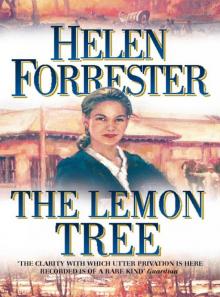 The Lemon Tree
The Lemon Tree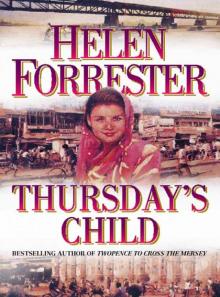 Thursday's Child
Thursday's Child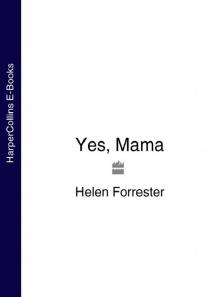 Yes, Mama
Yes, Mama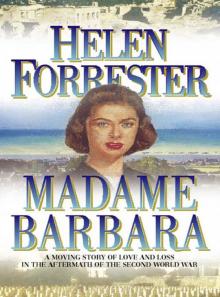 Madame Barbara
Madame Barbara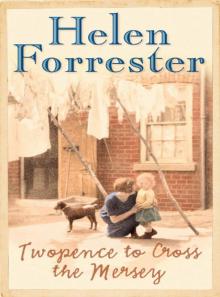 Twopence to Cross the Mersey
Twopence to Cross the Mersey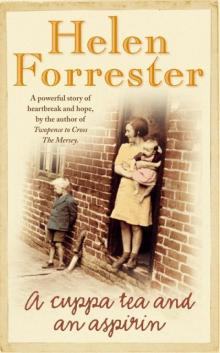 A Cuppa Tea and an Aspirin
A Cuppa Tea and an Aspirin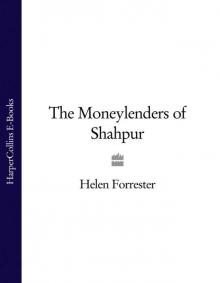 The Moneylenders of Shahpur
The Moneylenders of Shahpur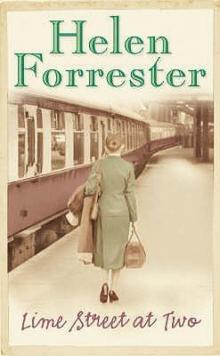 Lime Street at Two
Lime Street at Two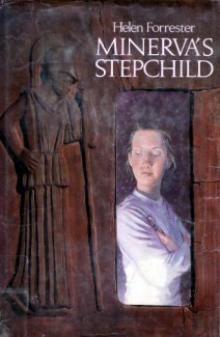 Minerva's Stepchild
Minerva's Stepchild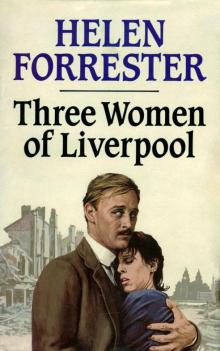 Three Women of Liverpool
Three Women of Liverpool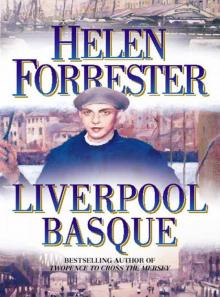 The Liverpool Basque
The Liverpool Basque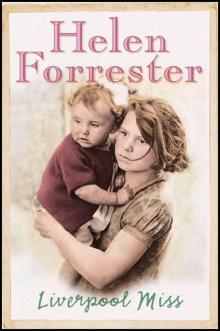 Liverpool Miss
Liverpool Miss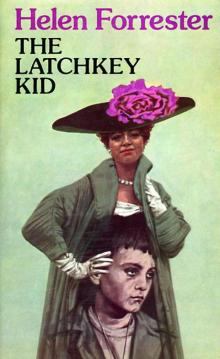 The Latchkey Kid
The Latchkey Kid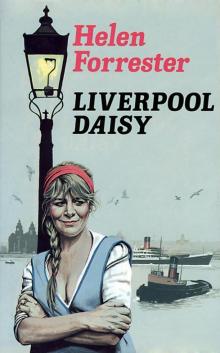 Liverpool Daisy
Liverpool Daisy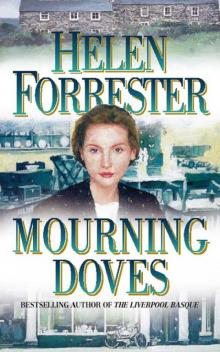 Mourning Doves
Mourning Doves